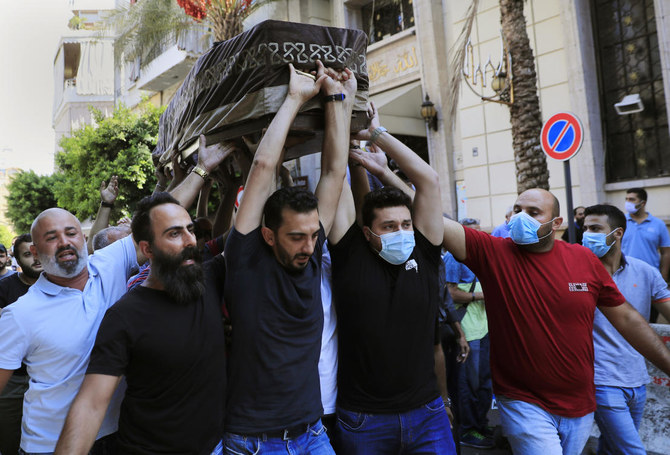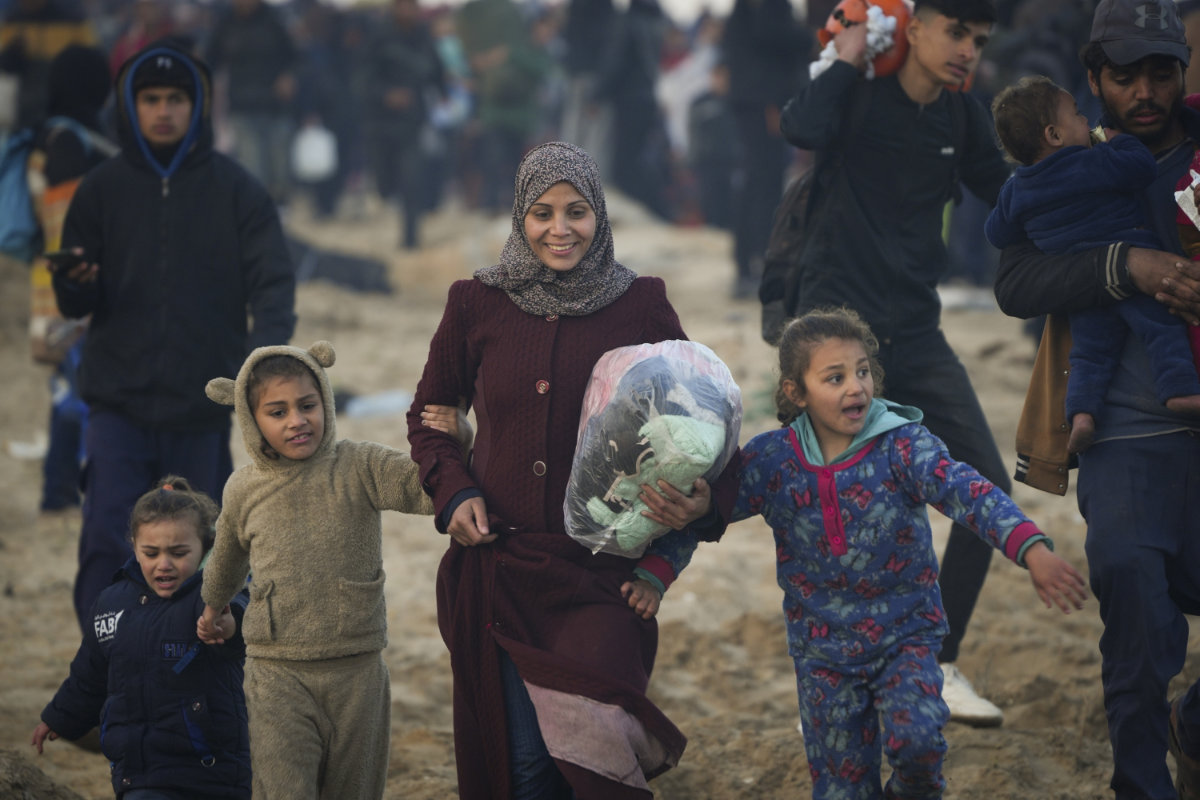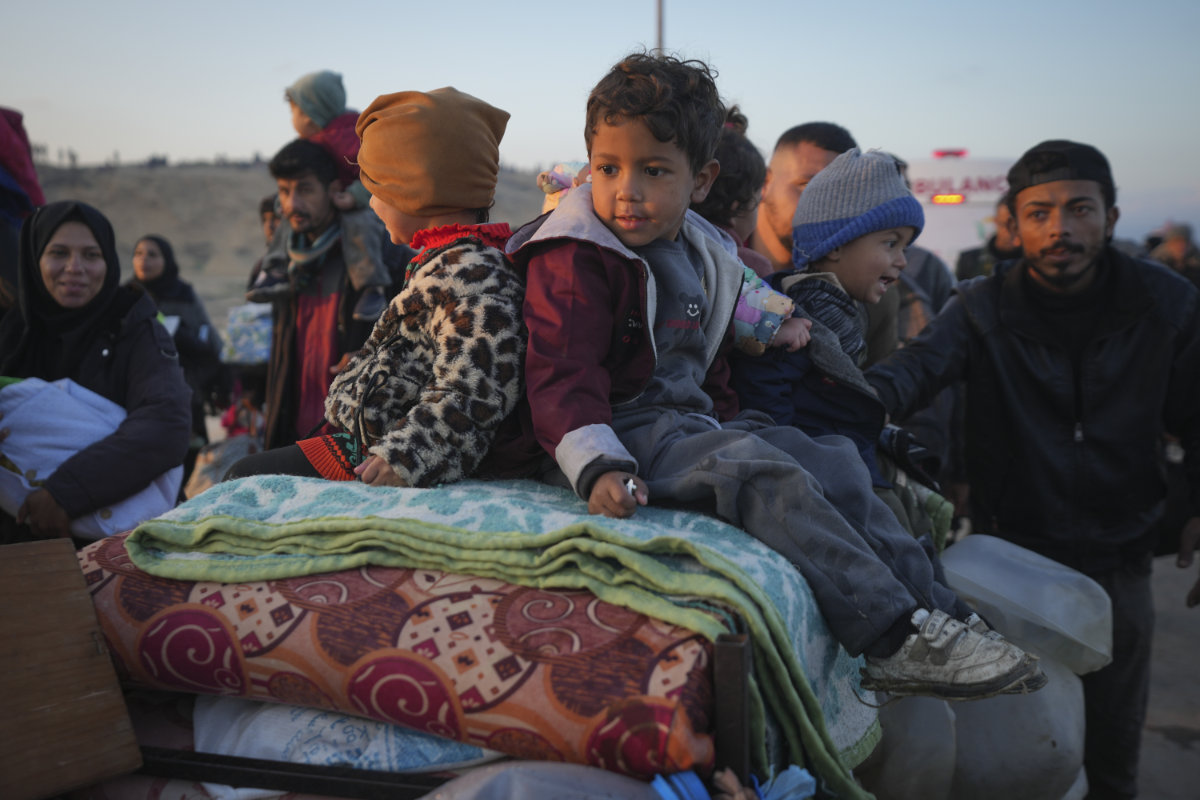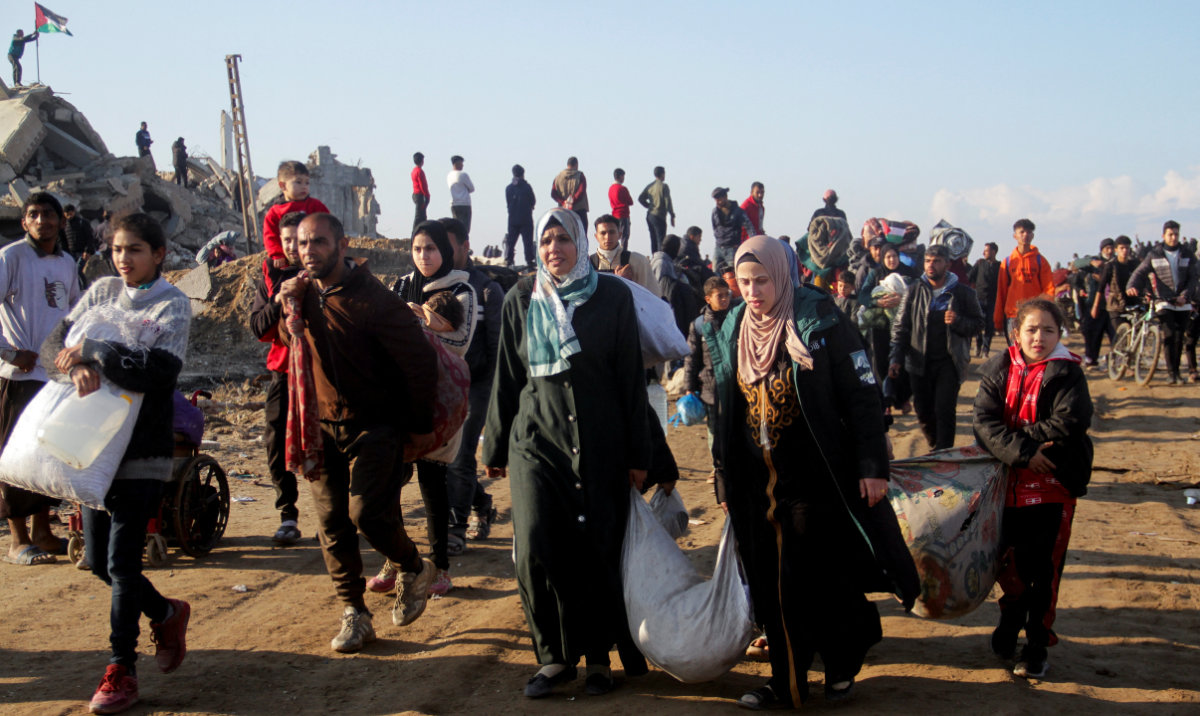BEIRUT: Ibrahim Mustafa Harb, who was critically injured in the massive explosion at Beirut’s port last year has died, nearly 14 months after the blast.
Harb, a 36-year-old accountant, was at his downtown office when the explosion wiped out the port and devastated nearby neighborhoods. He finally succumbed to his serious head injuries while at his parents’ home on Monday night.
Harb was in a coma after the blast and spent more than three months in the hospital. His condition began to improve until he suffered a setback last week.
“He sustained serious injuries to his face,” one of Harb’s relatives told Arab News. “As soon as he woke up from his coma, Harb underwent medical rehabilitation that cost his family unimaginable amounts.”
On Aug. 4, 2020, hundreds of tons of ammonium nitrate, a highly explosive material used in fertilizers, ignited after a massive fire at the port. It later emerged that the nitrate had been improperly stored at a port warehouse for years while senior political and security officials knew of its existence and did nothing about it.
Harb brings the death toll from the blast to 215.
The investigation into the case has produced few answers of accountability due to political pressure on investigators. The families of the victims continue to protest in the streets demanding justice.
Judge Tarek Bitar, who was investigating the explosion had to suspend his work on Monday. A court will now vote on whether to replace him in response to a complaint filed last week by former Interior Minister Nohad Machnouk.
Machnouk is one of the top officials suspected of negligence, a charge brought by Judge Bitar. Other suspects include former premier Hassan Diab, three other ministers, a former army commander, current directors of public security and state security, judges, senior officials at the Beirut port, and customs agents, some of whom have already been detained.
Prime Minister Najib Mikati said on Tuesday that he hopes the court of appeal will reject Bitar’s suspension “because Lebanon cannot handle another judge being removed,” as he believes the investigation will lose credibility if a third judge will be named.
Bitar’s predecessor, Judge Fadi Sawan, was sacked in February.
The suspension of the probe has sparked an outcry from the families of the blast victims. They protested against the possible removal of Judge Bitar during a meeting with Justice Minister Henry Al-Khoury on Tuesday.
Al-Khoury said he was “confident about the judges of Lebanon” and called for leaving the case to its legal course.
“The smear campaigns against the judiciary system and judges must be stopped as this will only lead to weakening the case and delaying justice,” Al-Khoury said.
William Noun, brother of blast victim Joe Noun, was optimistic and wants Judge Bitar to remain on the case.
“The families of the victims hope that the court of cassation, which has the right to decide on Machnouk’s request, will not remove Judge Bitar and that its decision will be fair,” he said.
Rima Zahed, sister of victim Amin Zahed said: “We will not stop. We will sleep in the middle of the roads for this cause. The political authority has exposed itself. They are trying to obscure the truth.”
Shukri Sader, former head of the Shoura Council, said that removing judge Bitar “paves the way for more requests of removal that aim to buy time until the next session of parliament. During this period, there are no immunities for deputies and Judge Bitar can use this to question the defendants.”
He said there is “a corrupt class that destroys the rest of the judicial authorities under the cover of immunities that are the biggest curse.”
Bitar’s investigation, Sader said, has been transparent and impartial.
“We must stand with the families of the martyrs,” he said.
UN Coordinator for Lebanon Najat Rochdi tweeted: “There is an urgent need for an independent and impartial investigation into the explosion. Justice must be served and the families of the victims of the explosion have the right to know the truth.”
Meanwhile, defense attorneys for the director-general of Lebanese General Security, Maj. Gen. Abbas Ibrahim, who is a defendant in the blast case, accused Judge Bitar of “committing legal irregularities while investigating the case, either to gain time or to dilute the truth.”
The lawyers accused Bitar of “abnormal behavior” and a “double standard.” They accused him of giving a media interview and talking to families of the victims, who are a party in the case.






























